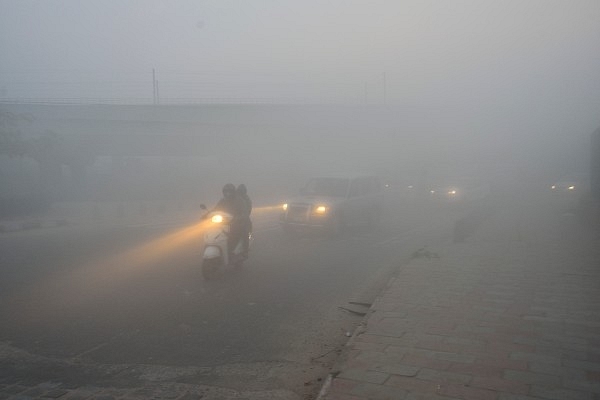
Emissions Emerging Outside Delhi The Biggest Cause Of Its Pollution Woes, Finds Study
Delhi contributes to just 36 per cent of Particulate Matter (PM) 2.5 pollution in the city during winter, with the rest being a result of sources outside the NCR, according to a study by The Energy Research Institute (TERI) and Automotive Research Authority of India (ARAI), Business Standard has reported.
The contribution of the city to its PM 2.5 pollution is just 26 per cent during summers, rest of it originates from outside Delhi.
PM 2.5 emissions are 30 times finer than the thickness of human hair. They are produced when coal, kerosene, diesel and biomass is burnt. These pollutants when breathed deep into lungs and cause heart attacks, strokes, lung cancer and respiratory diseases. Thus, the World Health Organisation (WHO) considers this indicator as the best measurement of health risks due to air pollution in any given area.
During the winter of 2016-17, the PM 2.5 concentration in Delhi was 168 microgram per cubic metre. This was more than four times the national limit of 40 and 16 times more than the WHO prescribed limit of 10 micrograms per metre cube. These numbers indicate that states surrounding Delhi need to collaborate to ensure that 2.7 crore population of Delhi does not pay a heavy price due to pollution in the region during winters.